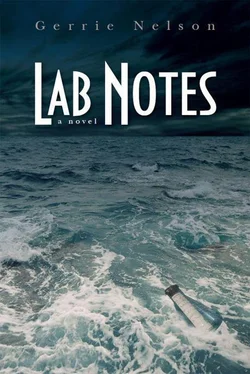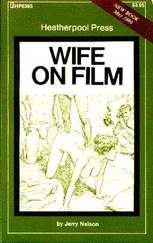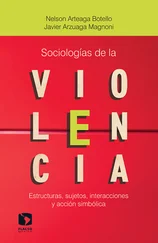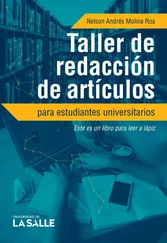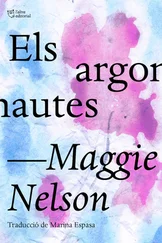“After a month in hell waiting for the kidnappers’ demands, I was stunned to hear Carlos Carrera’s voice on the other end of my telephone saying that he had my son. I had never met the man. I only knew him by media reports of his wealth.
“Carlos had encountered my son on the trail, much the same as he did you, Diane. But when he looked at Eduardo, he saw the face of his dead son—green eyes, cowlick and all. Immediately, Carlos knew Eduardo was his grandson. And his lineage was confirmed when he asked Eduardo his name.
“Of course he was not interested in a ransom. He assured me he was not punishing me; he did not hold me responsible for the death of his son years ago. But he wanted to keep Eduardo with him for awhile.
“Dumbstruck, I listened while Carlos reported on Eduardo’s activities as if he were merely away at summer camp. He ended the conversation by telling me that my son was enjoying himself at his ancestral home, but now he would like to see his mother. ‘A boy needs to connect with his heritage, but he also needs his mother,’ he said.
“In order to see my son, I had to visit him at the Carrera mansion. Eduardo was content there. He sensed that we would both be safer if he stayed connected to his grandfather. At first I feared he had been brainwashed. But then I remembered that he was bred in the wilderness and had trained for the Kogi priesthood; he saw things that most did not. I agreed with the living arrangement.”
Olimpia took a weary breath, then went on: “Two years later, I was visiting with Eduardo when Carlos invited me into his study. He told me that Eduardo had learned what was expected of him as a Carrera. So now he could come to live with his mother. But first, he said, a deal must be struck.
“He then informed me that Gabriel refused to recognize Eduardo as his son legally. It was not that he felt threatened that he would lose his inheritance to Eduardo. Gabriel has his own money—outside of Carrera Industries.
“With a sizable inheritance from his mother—and it is rumored there were other sources also—Gabriel started an investment fund that has made him quite wealthy in his own right.
“No, it was not about money. The reason Gabriel would not recognize his son was because he still harbored ill-will toward me. Carlos said that Gabriel was not a forgiving man.
“Therefore, he, Carlos Carrera, wished to adopt Eduardo to legitimize his claim to the Carrera empire. He also wanted my vow of silence regarding his secret hunting camp on the mountain and the circumstances of Eduardo’s conception. I pledged my life and that of my son. What choice did I have?
“After we shook hands, Carlos presented me with a mansion in Bogota and the villa on Aruba that he had purchased for Eduardo and me.
“From that day forward, I would live in safety and luxury. But the Carreras owned me and, more so, my son—despite my efforts to pull his affections away from them.
“Never believe you can turn one Carrera against the other. No matter the contention between them; Carlos, Gabriel and Eduardo are inextricably bound together by their polypeptide chains. DNA is the strongest bond in the universe—but particularly here in Latin America.
“So, you see, when Gabriel requested that I move to the States to set up the ethnobotany program at BRI or else find him another botanist, it was actually a command. Giving him your name seemed like the perfect answer back then.
“That day I phoned you from Houston, I had been to the Texas Medical Center there—nothing serious, just some tests—and I stopped by BRI for a tour. I found the physical set up quite nice. But the building had a malevolent aura.
“I knew BRI had contacted you, so I called you to warn you off of them. But you did not answer. Then later at a meeting with Gabriel, he told me that after vetting your credentials, he decided that he had to have you at BRI. I told him I would try to influence your decision. But of course I was lying. I had no intention of intervening for him. After that I spent a lot of time praying that you would not accept the position.”
Olimpia walked over, sat on a rock beside Diane and looked her in the eye. “Through my relationship with the Kogi, I have developed a deep sense about people and places. For example, I have known of your distrust and fear of me since your phone call when you were fleeing Carrera Island”
Diane reached over and touched her friend’s arm. “Olimpia, I am so sorry—”
“No need to apologize. In fact, you should have been wary of me years sooner. You were still a child when you became the subject of my ill-thought-out experiment with mind-bending tree lichen. As a result, you bonded to me like a duckling to its mother. I had to be very careful not to plant the wrong ideas into your suggestible mind. But now Yami has freed you from any influence I might have had over you. Your future is your own.”
Then she added in a quivering voice: “I was certain that the hunters were not due for another month, or I never would have brought you here. I am so sorry. I have made things worse and worse for you.”
She gripped Diane’s hand as if to underscore her next words. “The hunting club is much more than it seems. They kill to guard their identity. My vow of silence and Eduardo as my collateral are the only reasons I am still alive. I am quite concerned for your safety though.”
The clanking of the metal stairs outside startled Diane from her thoughts. She glimpsed out the small window, then turned toward the door. Had the “ Padrone” arrived?
Two of his bearded henchmen had grabbed her in a small village in the foothills where she and Olimpia had stopped earlier that morning to clean up at a barrel of rainwater after they had parted ways with their Kogi guides.
The men pulled up in a red 1960’s Chevy truck, snatched her from amidst a group of curious children, and forced her into the cab, wedged between them. As the truck skidded onto the muddy road, Diane could hear Olimpia screaming after them.
Diane’s greatest fear had materialized. Overwhelmed with terror, her mind clicked through the possibilities ahead: a forced jungle march, months (maybe years) as a hostage, torture, rape, childbearing in the wilderness, death by various, horrible means.
Assuming she knew no Spanish, the man on the passenger side, the friendlier of the two, attempted to calm her with a few words of English: “City. Safe. Food.”
Then the driver spoke to the other man in Spanish. “You want to pull off the road and have a piece of those juicy loins?”
The other, who seemed to be in charge, replied: “The Padrone would have your cajones ; he ordered fresh meat.”
Once they arrived at their destination, she was turned over to two less-brutish men who provided her with a clean shirt and shorts and permitted her the use of the small bathroom. Then she had been served a light lunch and ordered to stay put.
Now, after being held prisoner for two hours, she heard footsteps on the metal stairs. Then the door swung open and he entered.
“Diana,” Gabriel said softly as he moved down the aisle of his plane, parked on the tarmac at Santa Marta’s Simon Bolivar Airport.
Diane struggled to control conflicting emotions as Gabriel moved toward her. But when she lifted her head to look him in the eye, her hatred surfaced unchallenged.
He sat down across from her and leaned forward.
Diane shot him a cold stare. “Why am I being held prisoner here?”
Gabriel’s voice was gentle, dismayed, hurt. “I have been worried. I have searched the earth and the heavens for you since that night.”
Diane responded in an icy tone: “Hey, I thought we had fun too. But I’m surprised a man with your experience would take a one night stand so seriously.”
Читать дальше
